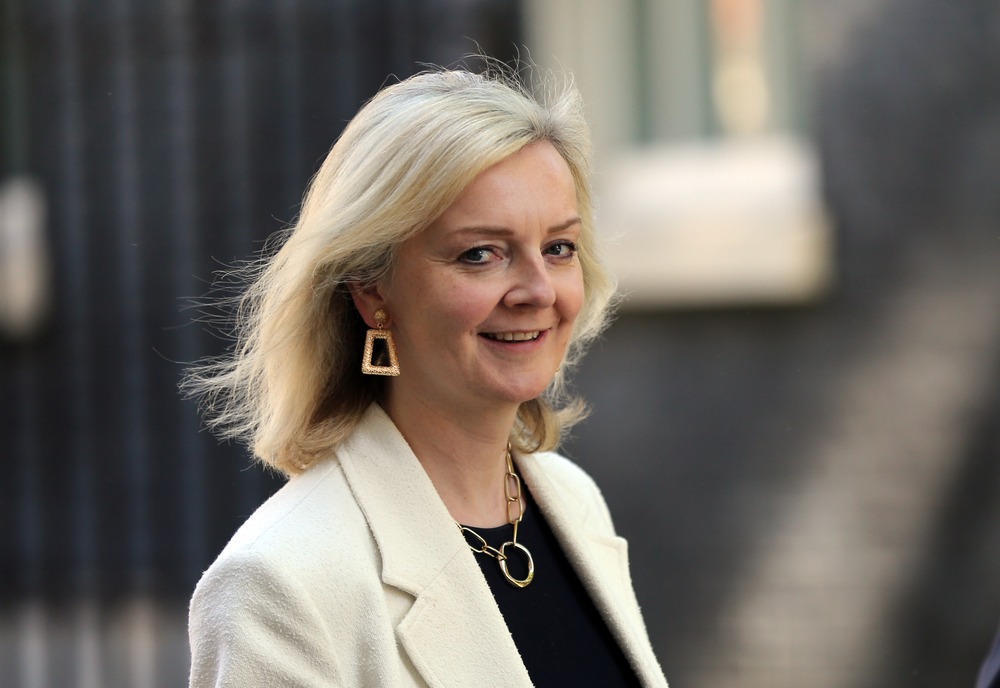Social Media Strategies of OpenAI and Liz Truss

Former British PM Liz Truss to Launch a New Social Media Platform
A New Vision for Free Speech
Liz Truss, the former Prime Minister of the United Kingdom, is preparing to launch her own social media platform. She envisions this platform as a space that promotes free speech and allows users to discuss various topics that, according to her, are either suppressed or overly favored by mainstream media outlets. Truss, who served as Prime Minister for a brief 50 days, shared her plans during a cryptocurrency conference in Bedford.
She stated, "We need a media network to communicate with people and foster a grassroots movement that demands change from our leaders." The platform is expected to debut this summer and aims to create a community for users to share their opinions openly.
Following in the Footsteps of Others
Truss’s move to create a social media platform resembles similar ventures launched by other political figures. Notably, former U.S. President Donald Trump established his platform, Truth Social, in 2022 after a contentious history with mainstream social media. However, challenges have arisen, as Truth’s parent company faced a significant financial loss of $400 million last year.
OpenAI’s Upcoming Social Media Rival
Developing a Competitor
In a surprising development, OpenAI, the organization behind ChatGPT, is also working on launching its own social media platform. Reports indicate that the AI research lab has created an internal prototype and is seeking user feedback. OpenAI’s CEO, Sam Altman, expressed interest in utilizing ChatGPT’s capabilities, particularly its image generation feature, in the platform’s development.
While the details remain unclear, it is anticipated that this new offering might directly compete with existing platforms like Twitter (now referred to as X) and Instagram. This comes amid ongoing legal disputes between OpenAI and Elon Musk, one of its co-founders, concerning the organization’s direction and financial practices.
Challenges in the Tech Industry
Impact of US Export Rules
Significant news in the technology sector involves concerns voiced by chipmakers such as AMD and Nvidia about U.S. export regulations on artificial intelligence (AI) chips. AMD recently disclosed that new licensing requirements for exporting certain semiconductor products to countries like China could lead to a financial burden of approximately $800 million for the company.
According to AMD’s reports, these restrictions could hinder their ability to sell AI chips, impacting their overall earnings. Nvidia also highlighted possible charges of $5.5 billion due to similar export limitations.
Investment in Quantum Technologies
Government Initiatives in the UK
The UK government recently announced a funding package of $160 million aimed at fostering advancements in quantum computing technology. This funding is part of the National Quantum Technologies Programme and represents a continuation of prior investments.
Details of the funding allocation include:
- $32.5 million directed towards five quantum research hubs.
- $20 million earmarked for establishing 11 quantum career fellowships.
- $5.7 million designated for quantum apprenticeships.
- $28 million committed to the National Quantum Computing Centre located in Harwell.
- $14.4 million dedicated to the quantum measurement program at the National Physical Laboratory.
These initiatives underscore the UK government’s commitment to supporting innovations in the quantum field.
Legal Challenges for Meta
Monopoly Allegations
In a high-stakes trial, Mark Zuckerberg, the CEO of Meta Platforms, has defended the company against accusations of operating a monopoly in the social media landscape. The U.S. Federal Trade Commission has charged Meta with dominating the market unlawfully through its acquisitions of platforms like Instagram and WhatsApp.
During the proceedings, Zuckerberg faced scrutiny for his earlier considerations to separate Instagram from Meta, attributing this discussion to operational challenges rather than acknowledging any monopolistic intentions. Despite the trial’s tension and potential ramifications for Meta, the company continues to deny claims of monopoly control, and the trial is expected to last several weeks.
As these stories unfold, it remains to be seen how they will impact the ever-evolving landscape of social media and technology.






